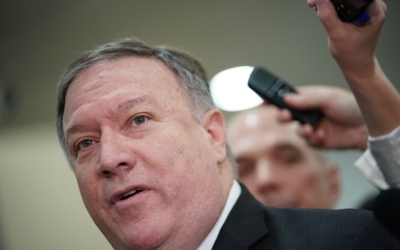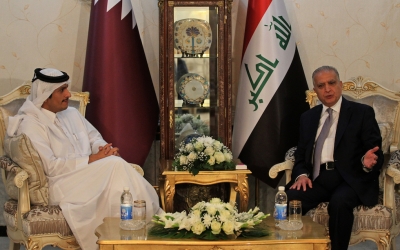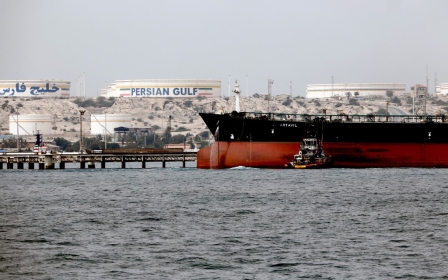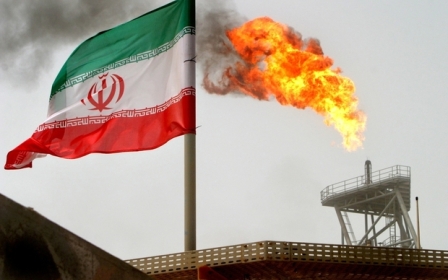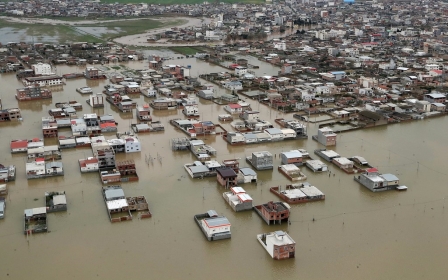Sanctions waivers end for Iranian oil: What happens next?
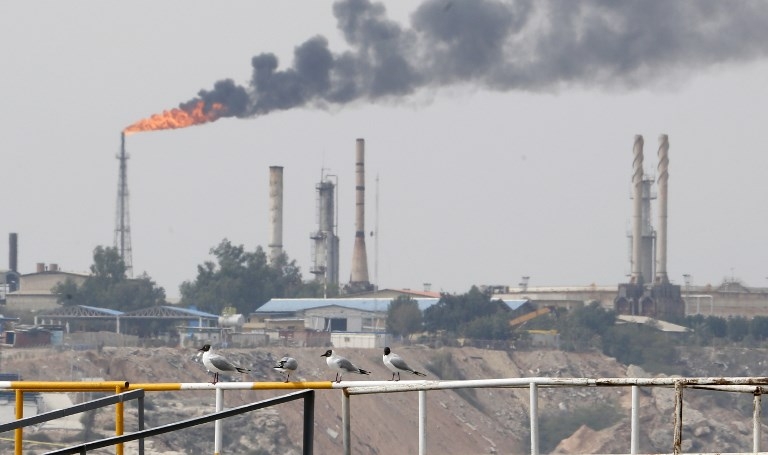
As US sanctions waivers for countries that import oil from Iran are set to expire on Thursday, experts say they are unlikely to collapse Iran’s government even though they will harm the economy.
The sanctions waivers given to Turkey, China, Japan, India and South Korea provided a lifeline for the Iranian government, but with the waivers expired, those imports have to be halted or those countries will face US economic retaliation.
Pushing for the waivers to end were hardline senior White House officials, notably Secretary of State Mike Pompeo and National Security Adviser John Bolton, both of whom have promoted regime change in Iran.
"The game being played right now is a shock effect," Trita Parsi, an Iranian expert and founder of the National Iranian American Council, told Middle East Eye.
"The idea is to collapse the regime, shock the Iranian system and get people out on the streets," he added.
However, the end of sanctions waivers is not likely to topple Iran's government, experts added.
"Economic pain will be immense but it will not topple the regime," Parsi said.
Skirting sanctions
The country and its neighbours have a number of avenues to skirt around sanctions, including smuggling, which was the case before the nuclear deal was inked.
"During the prohibition period in our country, enterprising individuals and organised groups devised all types of means to avoid detection and easily violate prohibition laws. The rules did not work," Nozar Hashemzadeh, an economics professor at Radford University in Virginia, told MEE.
The US has not yet commented on the expiration of the sanctions waivers since their announcement on 22 April.
"If you don’t abide by this, there’ll be sanctions. This is what we’re laying out this morning," Pompeo said at the time.
"We have a requirement and - to conduct these transactions, one almost always needs to participate in the financial markets, and we intend to enforce the sanctions. We don't lay out sanctions that we don't have any intention of encouraging countries to cooperate with," he said.
Still, experts contend that the US does not have the mechanisms, manpower or resources to impose a stringent set of enforcements on border trade with countries adjacent to Iran - namely Iraq and Turkey.
"To completely seal off Iran is next to impossible," Parsi said, adding that Iran's border with Iraq is large and porous.
Turkey, which like Iraq shares an expansive border with Iran and heavily relies on oil from the country, said it does not have the ability to halt imports immediately.
"It does not seem possible for us to diversify the sources of the oil we import in a short time," Foreign Minister Mevlut Cavusoglu told a news conference on Thursday.
"We have to renew the technology of our refineries when we buy oil from third countries. That would mean the refineries remaining shut for some time. This, of course, has a cost."
Turkey had imported almost one million tonnes of oil per month from Iran up to May 2018, and still continues to import 73,000 barrels per day, according to data collected by Washington-based energy firm SVB International.
India and China push back
Both India and China have voiced opposition to the US's decision to end the waivers.
India's External Affairs Minister Sushma Swaraj asked Pompeo to reconsider the United States's stance, the Hindustan Times reported on Wednesday, citing unidentified people familiar with the conversation.
China, meanwhile, openly criticised the decision and called it "long-arm jurisdictions" imposed by the US.
"Our cooperation with Iran is open, transparent, lawful and legitimate, thus it should be respected," said foreign ministry spokesperson Geng Shuang on 22 April.
The Europeans have similarly adopted a "special purpose vehicle" to skirt the Iranian sanctions.
Earlier this year, the EU originally conceived the financial mechanism as a way to help match Iranian oil and gas exports against purchases of European Union goods.
However, it will be used only for smaller trade, such as humanitarian products and food, diplomats told Reuters back in January.
Economic harm and potential consequences
Regardless, the end of the waivers programme aims to pile on more harm to Iran’s economy.
Iran's inflation rate has soared to almost 40 percent – about 130,000 Iranian riyals equate to one US dollar – since the US reimposed sanctions after President Donald Trump backed out of the 2015 nuclear deal, according to data from the International Monetary Fund.
The IMF also said that the country is expected to lose 6 percent of its GDP over the course of this year.
But as harmful as the sanctions may be, experts said that the US does not have an overarching strategy, and perhaps its policies may lead to a more militarily aggressive Iran.
"Tehran, increasingly backed into a corner, can make trouble in regional oil chokepoints such as the Strait of Hormuz, potentially leading to unintentional escalation, even if it is unlikely to directly attack the US or its regional adversaries," said Bob McNally, a former energy adviser to President George W Bush, in a Financial Times column.
Parsi echoed a similar sentiment on Iran's behaviour.
"If they reach a point where they're pressured, they will lash out," he told MEE. "That has its own risks."
Middle East Eye delivers independent and unrivalled coverage and analysis of the Middle East, North Africa and beyond. To learn more about republishing this content and the associated fees, please fill out this form. More about MEE can be found here.


